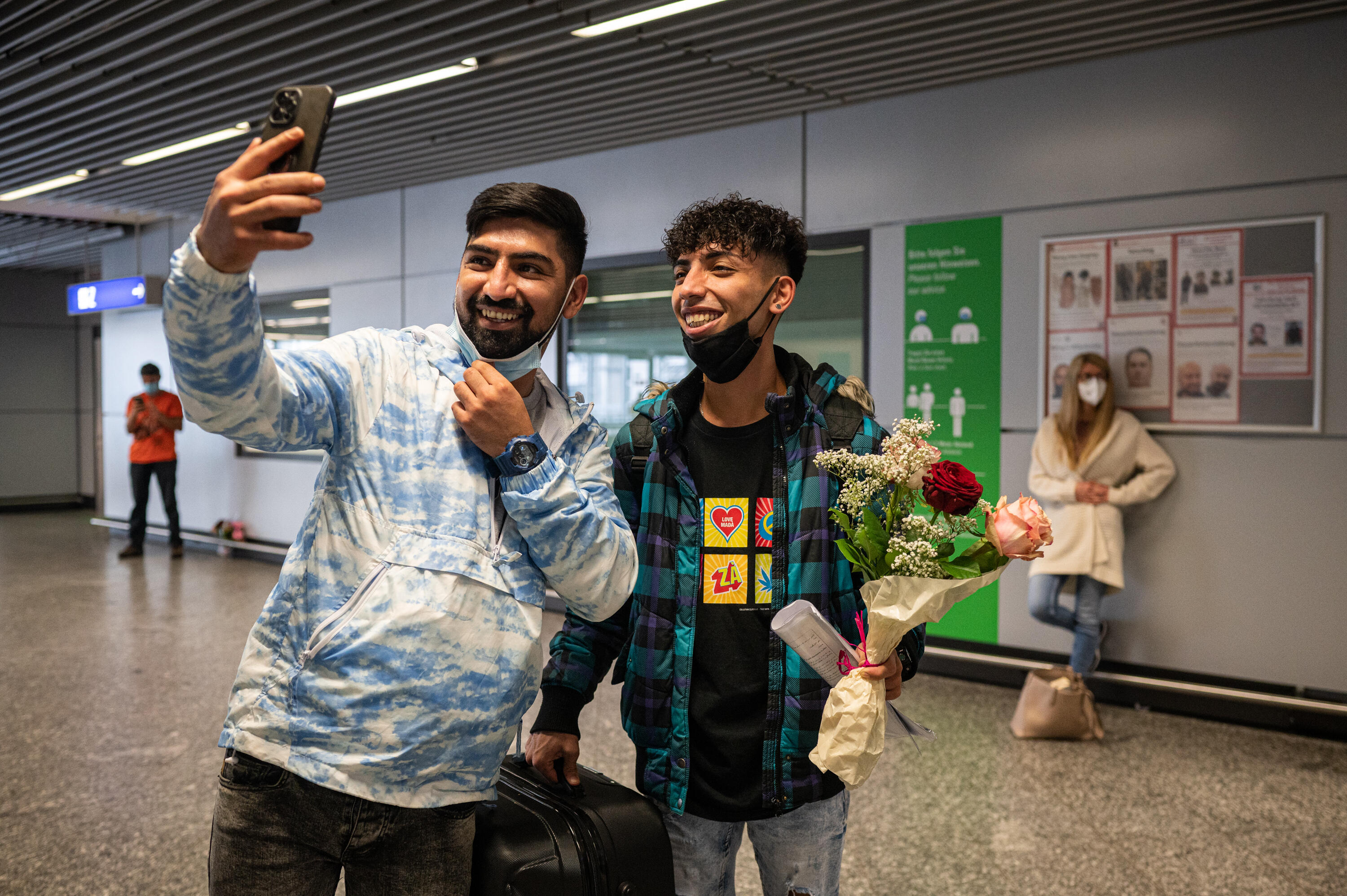
The triple threat of COVID-19, climate change and conflict hit many around the world particularly hard this year–but 2021 was not all bad news. Also in 2021, people opened their arms to refugees, families were reunited, and people uprooted by crisis demonstrated what they can accomplish when they are able to start their lives anew.
Below, explore the seven things that gave us hope in 2021:
1. People across the world welcomed Afghans in need of safety
When the government in Afghanistan changed, hundreds of thousands were forced to suddenly flee their homes. Countries from Uganda to Mexico to the United States opened their doors, while people from all walks of life pitched in to welcome Afghans as they arrived.
“I’ve loved working with the families, and especially with the children,” said Madina, an Afghan IRC staff member working in Mexico, “because they didn’t expect that there would be someone in Mexico from their country who could speak their language and would help them. They were really surprised but loved it!”
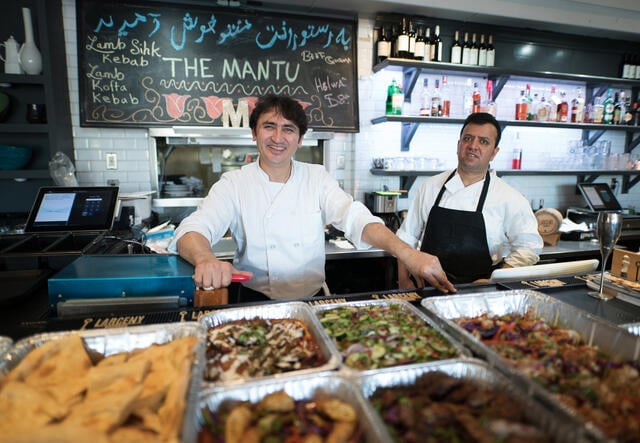
Many people in the U.S., including politicians, celebrities, fellow refugees, and military veterans also got involved.
“We saw the struggles they went through,” said Kate, a U.S. military veteran and IRC volunteer, of the newly arrived Afghans. “We knew when this unfolded that people needed all the support they could get. We don’t want them walking into this country without having anyone.”
Even children pitched in to welcome the newcomers–two young boys from Denver fundraised through a lemonade stand!
2. Americans stood up for refugees….and the Biden Administration listened
When the Biden Administration initially declined to raise its predecessor’s record-low refugee admissions cap of 15,000, Americans spoke out. Tens of thousands of people—including IRC supporters—made phone calls, urging the administration to change course.
President Biden listened, raised the admissions gap for fiscal year 2021 and later fulfilled his campaign promise to set a fiscal year 2022 cap of 125,000 refugees.
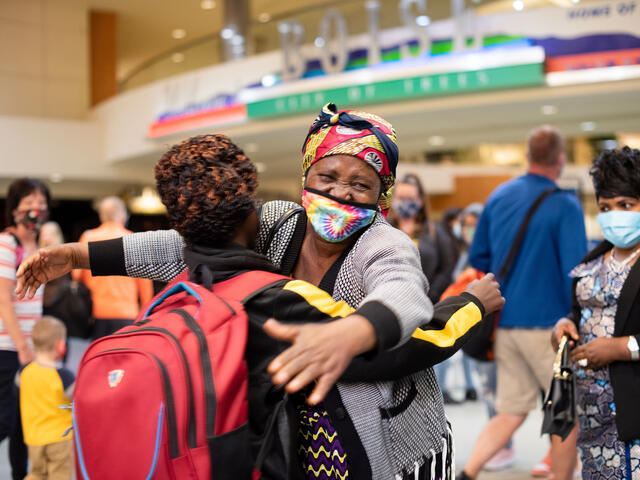
3. An Afghan teenager was finally reunited with his brother in Germany after 11 years apart
Imagine not being able to see or hug your brother for more than a decade.
That’s what happened to brothers Ali and Mehdi, young Afghan refugees who were kept apart for 11 years. Below, watch the moment they were finally reunited, with the help of the IRC.
4. A former refugee won a Nobel Prize.
Ardem Patapoutian, who shared the 2021 Nobel Prize in medicine with David Julius, fled to the U.S. as a teenager after being kidnapped by armed militants in Lebanon.
Plus: two other American winners of the 2021 Nobel Prizes in physics and chemistry were immigrants to the U.S.
5. The Paralympic Games welcomed the first official refugee team
In Tokyo this summer, an official refugee team competed in the Paralympic Games for the first time ever. Consisting of one woman and five men from around the world, the athletes represented the 82 million people who have been forced to flee their homes and cross into another country.
6. COVID-19 vaccines started reaching refugees
As the coronavirus vaccine rollout continued across the U.S. and other western countries, the IRC worked to get shots to people who need them most in refugee camps and conflict zones where health systems are strained and people are living in cramped conditions.
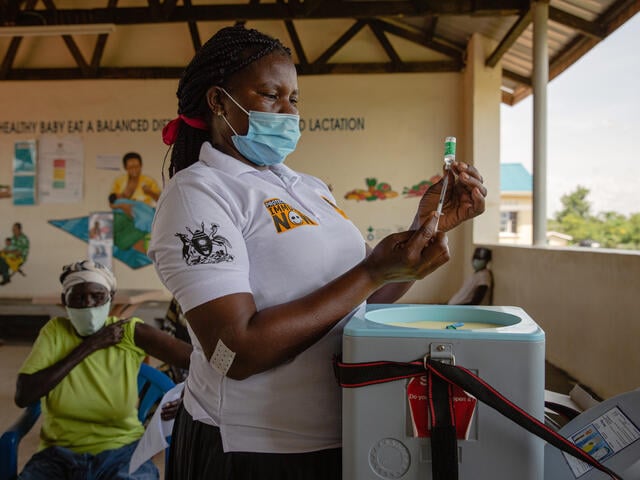
The IRC delivered COVID-19 vaccines to refugees and local communities in countries including Uganda, Kenya, Jordan and Thailand, as well as to families uprooted by conflict and crisis in Somalia.
Of course, there is still a long way to go until everyone in the world is vaccinated. Find out more here.
7. The IRC helped families welcome new additions
IRC doctors and midwives help mothers deliver healthy babies in some of the world’s most challenging places. This year, that included Seema*, born in Afghanistan and pictured below at her 5-month check-up.
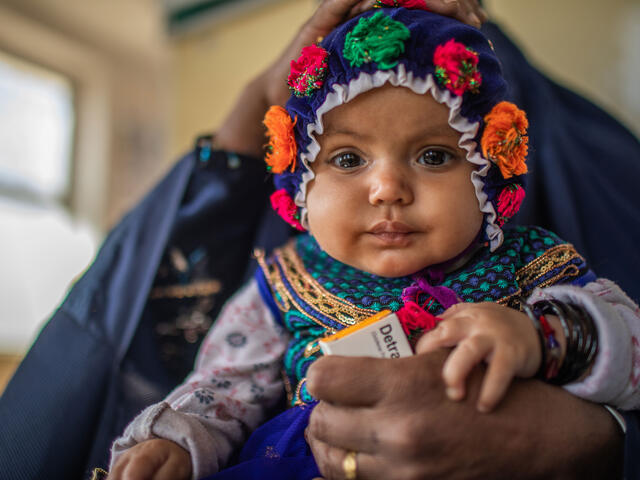
“It is a really good memory in my life,” said her mother, Mosina*, of her daughter’s birth. The high-quality care provided by the IRC health team meant a lot to Mosina, as her last pregnancy had ended with the tragic loss of her baby, who died during delivery.
Northeast Nigeria has been traumatized by ongoing conflict, but the community of Gwoza was recently home to a joyous occasion when 20-year-old Hussaini gave birth to a healthy baby boy, Bello.
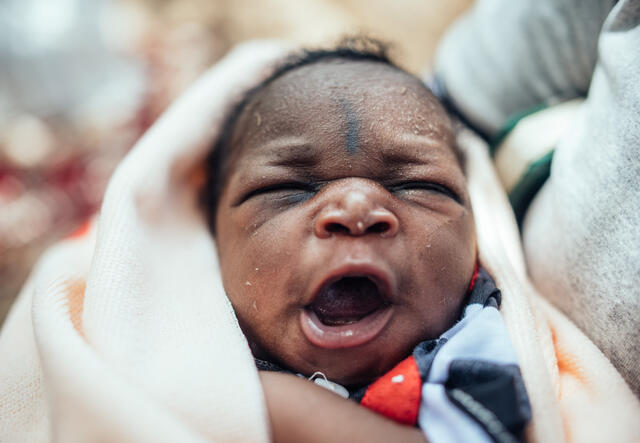
An IRC midwife, Murna, played a critical role in the birth, which followed a high risk pregnancy.
“I enjoy serving people,” Murna says. “There's this joy that you have afterwards… It makes me feel complete."